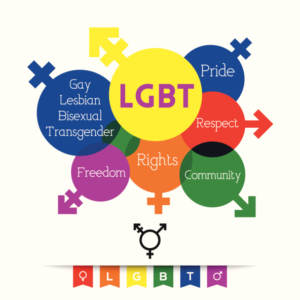Love is Love and Whoever You Love is Who You Love
Celebrities and allies stand up and speak out for the right to marry, the right to be who you are, and the right to love. In Kenya, lesbian, gay, bisexual and transgender (LGBT) groups win the freedom to organize and agitate for rights, although it is still a crime to be gay in the country. Progress toward a society built on tolerance, inclusion, acceptance and joy comes in many forms around the world.
Love Comes First
From the hit “High School Musical” on TV to a “Gigi” revival on Broadway, Vanessa Hudgens knows how to pick the right roles for performances that audiences love. In her personal and professional life she is a huge advocate of equality. “Love comes first for me,” she noted as she discussed the appeal her work has to the gay community in The Advocate.
You Control Your Future
Her current character on stage, a budding courtesan in turn-of-the-twentieth-century Paris, features a young woman with a strong character and identity. In “Gigi,” Hudgens sees the title character as a powerful person who is a “reminder that you are in control of your future and your happiness no matter what anyone else might think.”
In a recent interview with GLAAD, she notes that she “doesn’t see people as gay or straight.” She affirms that she speaks up as an ally because “it’s important for us to stand up for people and to have each other’s back and to be involved in the gay community and support the community.”
Speaking Up For Tolerance
On the red carpet at “Finding Neverland” on Broadway, celebrities shared thoughts with Claire Pires of GLAAD about gay rights and the progress of society toward equality:
- Bryan Cranston: “I think it’s absurd that there’s still an issue about marriage.”
- Laura Benanti: “Love is love, and whoever you love is who you love, and that is that.”
- Ansel Elgort: “I don’t see any reason people shouldn’t be allowed to be who they want to be.”
The long-time allies and supporters of gay freedom to marry are united in their hope that hearts and minds of people throughout the country can open themselves to tolerance and love.
Kenya Takes a Step Toward Inclusion
While the country remains conservative—with laws forbidding homosexuality—Kenya’s High Court has recognized the right of gay organizations to register under the laws and speak out about issues of concern. Powerful clergy and other conservative forces in the country react harshly to the decision, which grew out of rights of association that were protected in the country’s new constitution, created in 2012.
Groups such as the National Gay and Lesbian Human Rights Commission, which brought the petition to court, may now officially organize under the country’s Non-Governmental Organizations Co-ordination Act. A former Anglican priest and leader of the advocacy group Other Sheep-Africa called the decision “the beginning of the journey towards freedom.” Another pastor, who is an ally of the gay movement, has concerns that the decision will come under intense fire from conservative clergy and others in the community.
The Kenyan Christian Professionals Forum plans to appeal the ruling, which they believe opposes the fundamental values of the country and its citizens. The Anglican Archbishop expressed concern with the ruling; he believes that the Kenyan society is organized around “family units” rather than gay rights organizations.
Awakening To Tolerance
Some policies and regulations change with the force of law. Constitutional rights promise equal treatment under the law, and some courts and legislators are finally coming to recognize this reality. As many celebrities and allies note, the fury and emotion in the debate over gay marriage and rights is absurd and seems anachronistic in the 21st century.
Until individuals who are closed-hearted and judgmental toward those who are different from them can experience a real change of heart, laws will merely be a reflection of the ideals that society aims for. Reality of tolerance and equality comes from individuals in relation to each other, not in court rulings or legal decisions.















